Disclosure: Meeple Mountain received a free copy of this product in exchange for an honest, unbiased review. This review is not intended to be an endorsement.
Pocket Farm doesn’t have much in the way of reviews on Board Game Geek. 32 ratings and three comments as of this writing.
The first comment is unintelligible to all but the individual who wrote it.
The second is in Korean, and reads, “Cute. Headache. Short Playtime.” Accurate and succinct, the perfect review.
The third says, simply, “For children.” I get where BGG user G0nzo is coming from. Pocket Farm has a veneer of the adorable. Publisher Mandoo Games and artist DODAM have conspired to create the sort of product that wouldn’t look out of place in a preschool. You see this box and think, “What a cute little game. I could probably play this with my niece, who is 6.” The box says 10+, but you know that can’t be right.
Don’t be fooled by appearances. Pocket Farm is a real brain-burner. The rind may look sweet, but the fruit is tart.
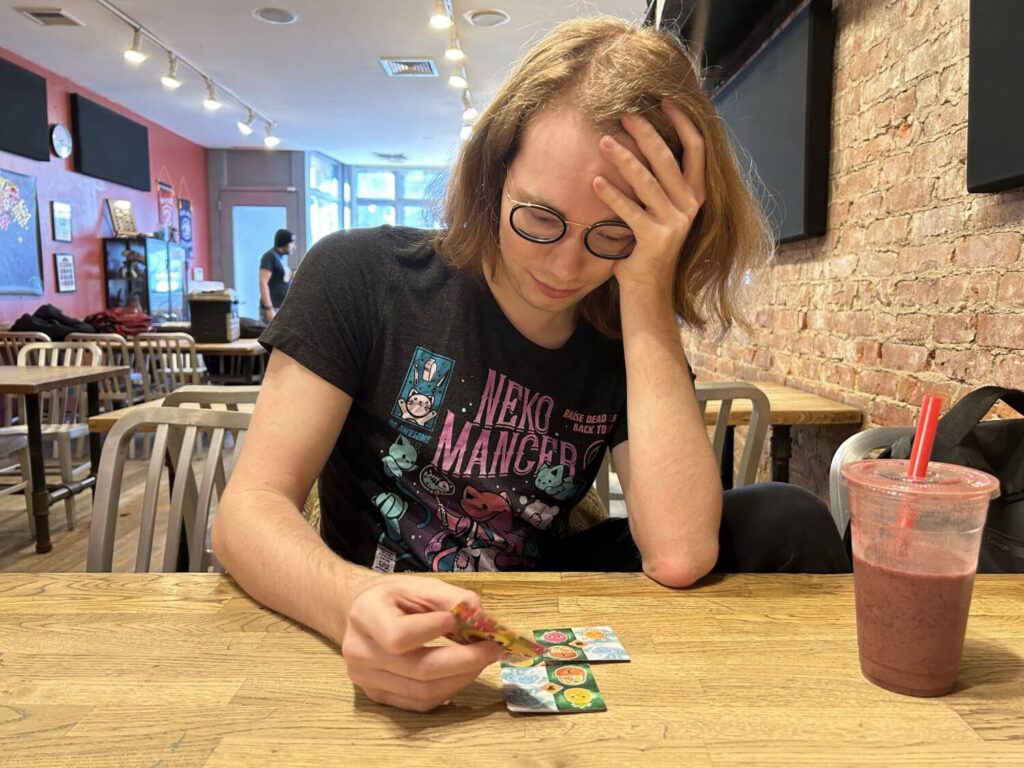
Baskets of Berries
Pocket Farm is a card drafting game married to a spatial puzzle. Each round, the starting player reveals a number of cards from the top of the deck equal to the number of players plus one. In a three-player game, for example, you would flip over four cards. In turn order, each player chooses one card to add to their hand before adding anywhere between 0 and 2 cards to their tableau.
Every card is divided into a 2×2 grid, with one icon in each square. Every icon matters. Clouds and suns help pay for the placement of future cards, while adjacent baskets and fruits affect scoring. At the end of the game, you score for each of the four fruits. Be it an apple, pineapple, raspberry, or avocado, the value of a given fruit is equal to the value of all baskets adjacent to one or more of that fruit in your tableau.
Even the card you don’t take is important. Remember how I mentioned that you reveal an extra card each round? The leftover cards become scoring multipliers at the end of the game. Every card has one fruit on it, and the score for any given fruit is multiplied by the number of that fruit present on the discarded cards.
Pocket Farm impresses me with its intentionality. Every decision you make during the relatively short playtime matters. Placement and adjacency impact how much your resources are worth, which will affect your ability to place cards in future rounds. While that’s true of just about any tile placement game worth its salt, there’s a brutality to Pocket Farm that sets it apart from games like Cascadia. Imagine Calico if Calico were less forgiving.
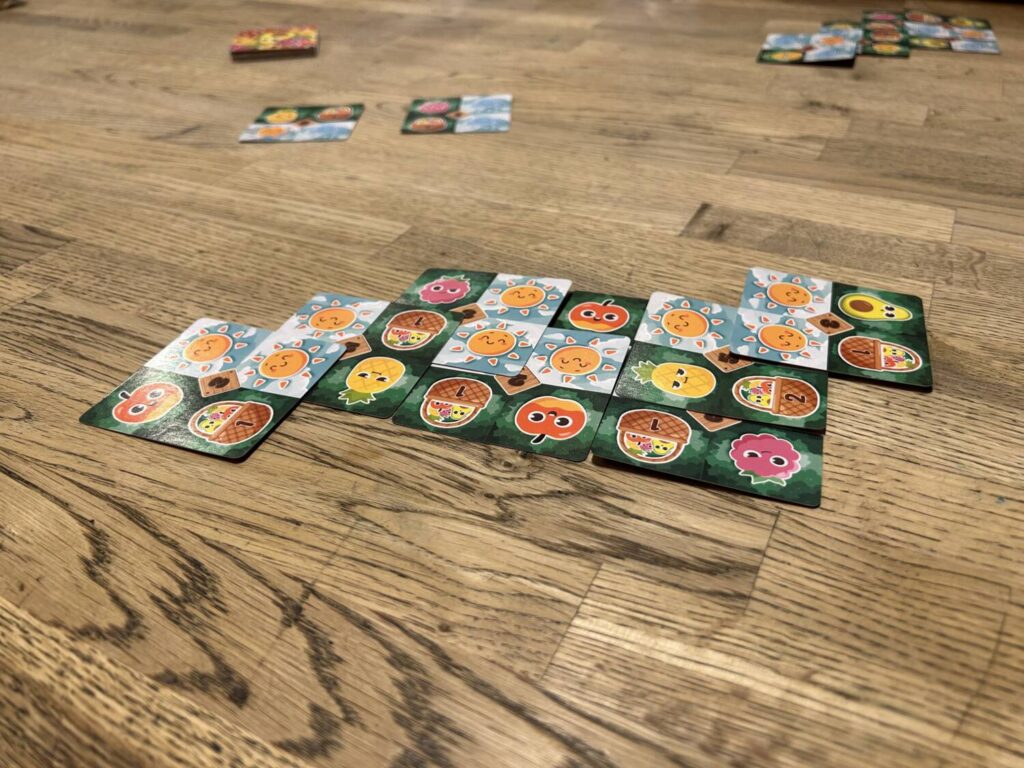
Maths
If you’re the sort of player who can’t allow any option to pass by unconsidered, you’d better strap in. Playing this with someone who has to math everything out would be insufferable. I imagine it wouldn’t be great for them, either.
Something related occurred to me while thinking about Pocket Farm. This is a game of skill and calculations, with the luck of the draw and the unpredictability of others interfering with what would otherwise be raw math. You learn to create certain formations with your cards, you develop a feel for when it’s better to cut a loss and cover an existing fruit or basket, you start to pick up on what decisions will least benefit your opponents. You can improve at it, is what I mean to say.
Perversely, though, if you are the sort of player who has to fully consider every option, who has to find the best move, and you play with a group of people who do the same, Pocket Farm becomes a game of pure chance. At that point, it’s all down to the cards that come out. If everyone plays truly perfectly, there’s no point in playing.
I don’t entirely know what that means yet, but I know it’s important.
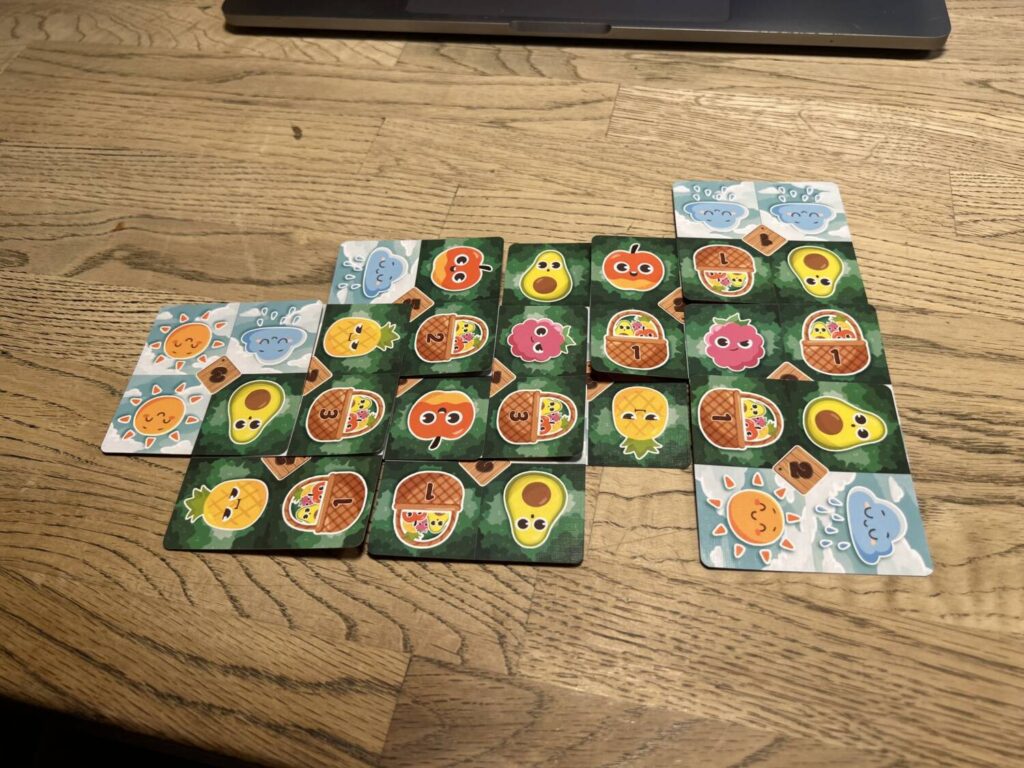
Avocados Are Berries
I like Pocket Farm. It’s tense, it’s mathy, it’s quick enough for me to not mind that it’s mathy, and it’s just interactive enough to remind me that other people are at the table. It plays great as a solo puzzle, too. I prefer it at two, because you’re more directly tied into what I think is the central tension of the game, the decision around what cards to add to your tableau and what cards to send to the scoring area. Is it better to add another pineapple to my board, or is it better to multiply what I’ve already got? Who’s to say? Certainly not me! I shoot from the hip. I don’t care for math.
The publisher, Mandoo Games, told me that Pocket Farm looks cute, but “it’s a mean game.” They were right, though not in the way I initially interpreted the comment. Pocket Farm’s cruelty doesn’t come from how you interact with everyone else. Unless you elevate yourself to a level of mastery that I don’t think Pocket Farm merits, you’ll never walk away from this game steamed at your opponent. It’s slightly too obscured for that. I don’t think that’s a bad thing.
You will, however, walk away with your brain on fire. You will walk away with the feeling that you could have done so much better. You will walk away from the solo mode haunted by the possible scores listed in the manual. Pocket Farm isn’t for everyone, but it’s good. Just do yourself a favor and trust the age listed on the side of the box.
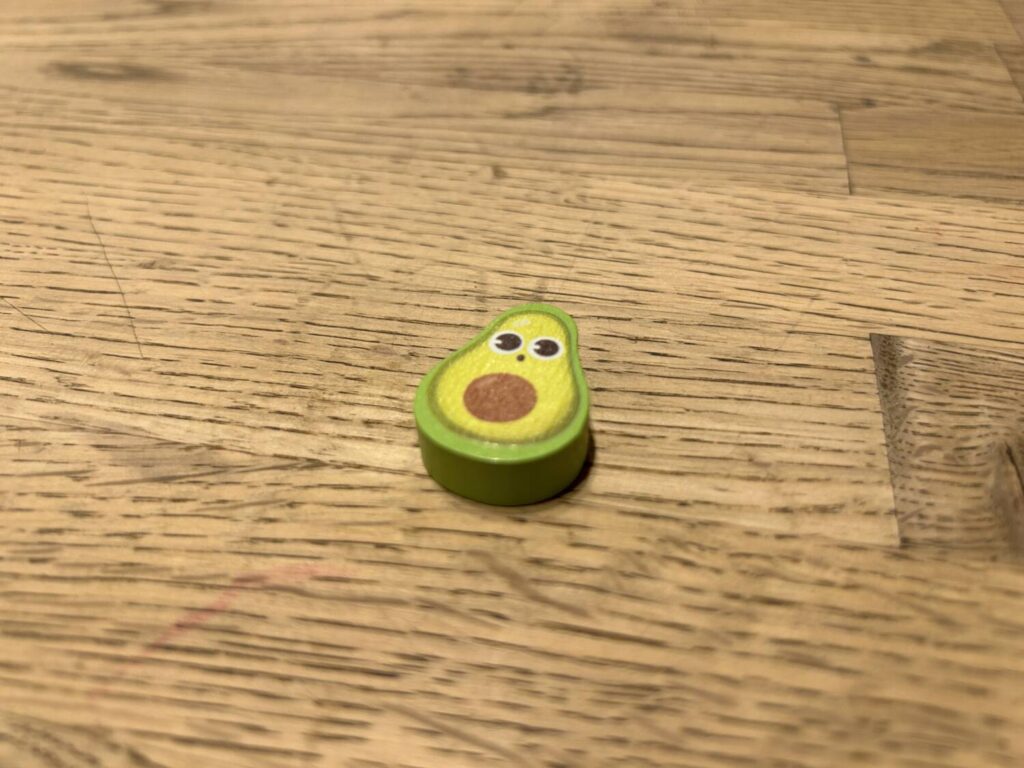


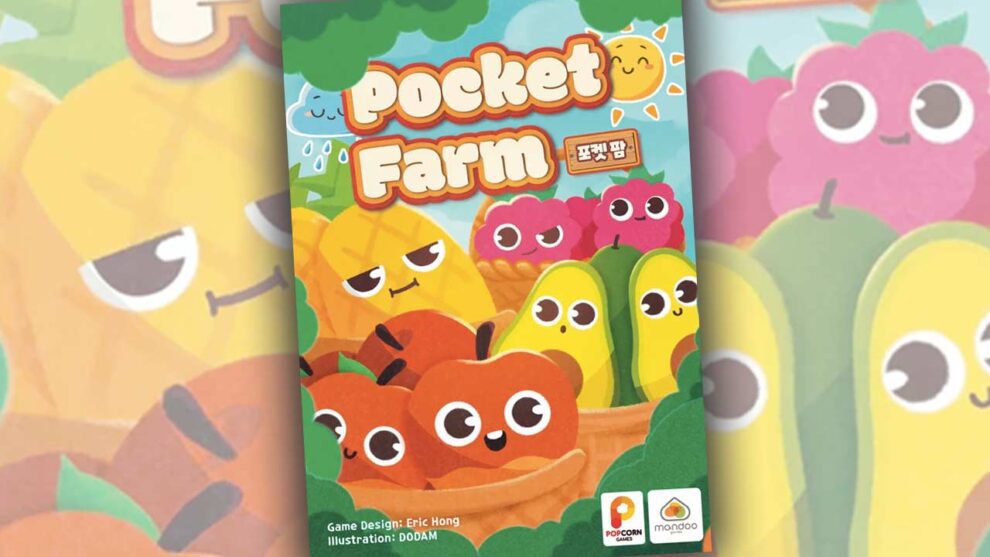
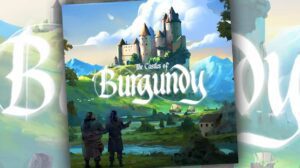


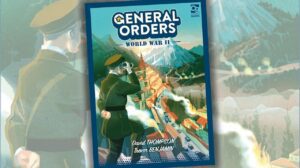




First — love the review.
Second — my best friend is a doctor of mathematics and my wife has analysis paralysis (meaning, the rest of us suffer from it).
This means that this might be a good game, but it is not going to be one I race to the game store to pick up.
Last — I have read a lot of good reviews on this site. But none has a line that can top “I don’t entirely know what that means yet, but I know it’s important.” That is just golden.
Thanks for a great review.